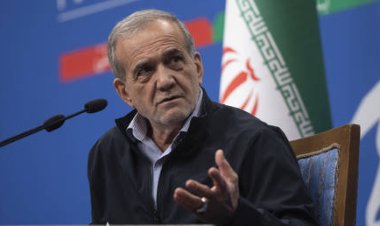Deal struck to avert freight rail strike, with Senate votes set this afternoon
Senate Majority Leader Chuck Schumer set three votes Thursday, hoping to head off a freight rail strike — the impacts of which could be felt within days.

The Senate will take three votes Thursday afternoon, hoping to resolve a contract dispute between freight railroads and their unions that has bedeviled President Joe Biden and Democrats for weeks and that threatened to start sidelining crucial drinking water, food and energy shipments within days.
Majority Leader Chuck Schumer said the Senate will vote on extending negotiations for 60 days, adding seven days of a paid sick leave to the rail workers' tentative contract and finally on the contract agreement itself. All three votes will require the support of 60 senators. Assuming the last vote succeeds, it would put an end to the turmoil over a freight rail strike that was possible starting Dec. 9, but whose impacts would start being felt as soon as this weekend.
"I'm very glad that the two sides got together to avoid a shutdown which would be devastating for the American people, the American economy and so many workers across the country," Schumer said on the Senate floor, shortly after a luncheon meeting with Transportation Secretary Pete Buttigieg and Labor Secretary Marty Walsh concluded.
"My main concern is to make sure the senators understand the implications of any kind of delay here," Buttigieg said Thursday morning on MSNBC. "Really that bill needs to reach the president's desk this week or by this weekend, in order to avoid some of the initial effects to our economy."
Sentiment varied widely among Democrats and Republicans about whether to endorse paid sick leave in particular. And the Transportation Trades Department, an umbrella union group for the AFL-CIO, on Thursday said they don't support a cooling off period extension.
"Freight railroads have made it clear that they are not interested in further negotiations with rail unions. Thus, any proposal to further extend the cooling off period would yield zero progress. Rather, an extension would simply allow the railroads to maintain their status quo operations while prolonging the workforce’s suffering," Greg Regan and Shari Semelsberger, president and secretary-treasurer of TTD, said in a joint statement.
President Joe Biden endorsed congressional action to head off a rail strike on Monday, after negotiations between unions who voted down the contract agreement and the railroads largely ground to a halt in recent weeks.
Eight rail unions voted to accept the tentative contract agreement while four chose to reject it. But if any one of the 12 unions chooses to go on strike the rest will not cross a picket line, effectively triggering a nationwide freight rail shutdown.
If the tentative agreement passes the Senate and becomes law without the sick leave bill also passing, it means changes to sick leave policy that workers support will have to wait, or be addressed by Congress at a later date.
Nick Niedzwiadek contributed to this report.












